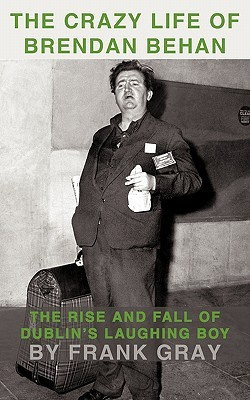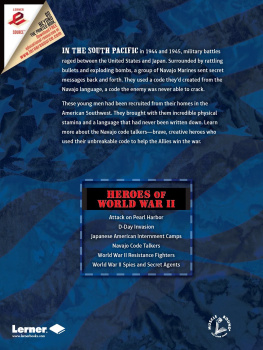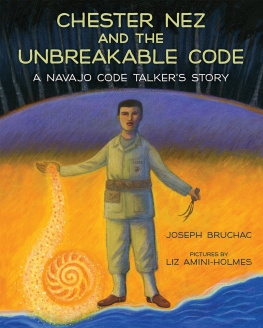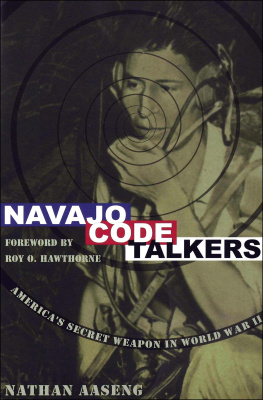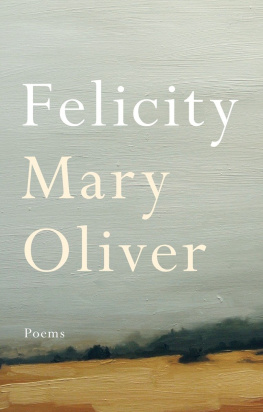FIRST MARINER BOOKS EDITION 2004
Copyright 1929 and copyright renewed 1957 by Oliver La Farge.
Copyright transferred 1988 to John Pendaris La Farge, Povy Bigbee and Wanden La Farge Gomez
ALL RIGHTS RESERVED
For information about permission to reproduce selections from this book, write to Permissions, Houghton Mifflin Harcourt Publishing Company, 215 Park Avenue South, New York, New York 10003.
www.hmhbooks.com
The Library of Congress has cataloged the print edition as follows:
La Farge, Oliver, 19011963.
Laughing Boy / by Oliver La Farge.
p. cm.
ISBN 0-618-44672-9 (pbk.)
1. Navajo IndiansFiction. 1. Title.
813'.52dc22 2004047462
ISBN -13: 978-0-618-44672-3
ISBN -10: 0-618-44672-9
e ISBN 978-0-547-52734-5
v2.1012
DEDICATED TO
The only beautiful squaw
I have ever seen in all my life,
whose name I have
forgotten
Introductory Note
T HIS BOOK is a work of fiction. I have tried to be as true as I knew how to the general spirit of Navajo things, to customs and character, but all personages and incidents in the story are fictitious, as well as places. I have used some real place-names applied to imaginary places, or else have shifted them a hundred miles or so. There are about thirty thousand Navajos, most of whom have at least two descriptive names; it would be impossible, then, to invent names for all my characters and not hit upon some real ones. So I have frankly borrowed from names I have heard, or those listed by scientists. But neither whites nor Indians are real.
I have been as accurate as possible about ceremonies, rites, and customs. If occasionally I have taken liberties, I plead a writer's privlege. Any innovations I may have made are none the less true to the general pattern of Navajo ideas.
This story is meant neither to instruct nor to prove a point, but to amuse. It is not propaganda, nor an indictment of anything. The hostility with which certain of the characters in it view Americans and the American system is theirs, arising from the plot, and not the author's. The picture is frankly one-sided. It is also entirely possible.
O. La F.
New Orleans, 1920
1
I
He was riding the hundred miles from T'o Tlakai to Ts Lani to attend a dance, or rather, for the horse-racing that would come afterwards. The sun was hot and his belly was empty, but life moved in rhythm with his pony loping steadily as an engine down the miles. He was lax in the saddle, leaning back, arm swinging the rope's end in time to the horse's lope. His new red headband was a bright colour among the embers of the sun-struck desert, undulating like a moving graph of the pony's lope, or the music of his song
'Nashdui bik' dinni, eya-a, eyo-o...
Wildcat's feet hurt, eya-a, eyo-o...'
Rope's end, shoulders, song, all moved together, and life flowed in one stream. He threw his head back to sing louder, and listened to the echo from the cliffs on his right. He was thinking about a bracelet he should make, with four smooth bars running together, and a turquoise in the middleif he could get the silver. He wished he could work while riding; everything was so perfect then, like the prayers, hozoji nashad, travelling in beauty. His hands, his feet, his head, his insides all were hozoji, all were very much alive. He whooped and struck up the Magpie Song till the empty desert resounded
'A-a-a-in, a-a-a-in,
Ya-a-in-ain, ko-ya-ain...'
He was lean, slender, tall, and handsome, Laughing Boy, with a new cheap headband and a borrowed silver belt to make ragged clothes look fine.
At noon, having no money, he begged coffee from a trader at Chinlee and went on, treasuring his hunger because of the feasting to come. Now he began to meet Navajos of all ages, riding to the dance. The young men bunched togethera line of jingling bridles, dark, excited faces, flashing silver, turquoise, velveteen shirts, dirty, ragged overalls, a pair of plaid calico leggins, a pair of turkey-red ones. Some of them were heavy with jewelry; Horse Giver's Son wore over four hundred dollars in silver alone; most of them had more than Laughing Boy. They stopped to look at his bow-guard, which he himself had made.
'I am a good jeweller,' he said, elated; 'I make silver run like a song.'
'You should make a song about yourself,' they told him, 'and teach the burros to sing it.'
'Have you had any rain up by T'o Tlakai?'
'No, it is just like last year. It is the devil. The grass is all dried up and the sheep are dying.'
'They had a cloudburst over by T'isya Lani. It washed out the dam.'
'It washed out the missionary's house, they say. His wife ran out in something thin and got wet, they say.'
'Ei-yei!'
Tall Hunter and his wife drove past in a brand-new buckboard behind two fast-trotting, grey mules. He owned over five hundred head of horses, and his wife had thick strings of turquoise and coral around her neck.
'His brother is in jail for stealing cattle, they say.'
'What is jail?' asked Laughing Boy.
Slender Hair explained: 'It is something the American Chief does to you. He puts you in a room of stone, like a Moqui house, only it is dark and you can't get out. People die there, they say. They haven't any room; they can't see anything, they say. I do not like to talk about it.'
Laughing Boy thought, I should rather die. He wanted to ask more, but was ashamed to show his ignorance before these southern Navajos, many of whom wore hats like Americans, and who knew so much of Americans' ways.
They raced. His horse was tired, but it won by a nose, which was just as well, since he had bet his bow-guard. Now he had six dollars. He hoped there would be gambling.
Ts Lani showed a distant bonfire in the dusk, with mounted Indians moving in on it like spokes of a wheel. About two hundred young men came together half a mile away, making their ponies prance, exchanging greetings. Crooked Ear carried the ceremonial wand. Now they all lined up, with the dull, red sunset behind their black figures. They started going like getting off to a race, right into a gallop, yelling. Over by the fire was shouting, and another line tearing towards them. The world was full of a roar of hooves and two walls of noise rushing together, the men leaning forward over their horses' necks, mouths wide. 'E-e-e-e-e!' They met in a great swirl of plunging, dodging horses, and swept on all together, whooping for dear life, with the staff in front of them, almost onto the fire, then dissolved with jingling of bits, laughter, and casual jokes as they unsaddled by the pool.
The steady motion of excitement was slowed then, in the last of the day, by the rocks and the pinons, by the reflection of the sky in the pool where flat, vague silhouettes of horses stooped to drink. The voices of many people, the twinkling of fires continued the motif, joining the time of quiet with elation past and to come; a little feeling of expectation in Laughing Boy's chest, a joyful emptiness, part hunger and part excitement.
He tended his pony minutely. The little mare had had two days of loping; shortly he wanted to race her; three days of rest would not be too much. She was his only horse; he had traded two others for her. She was tough, as a horse had to be to live at all in the North country. He ran his hands down her withers, feeling the lean, decisive muscles. In all that section, from Dennihuitso to Biltabito, from T'o Tlikahn to To Baka, where he knew every horse by sight, she was the best, but she would meet some competition here. He felt as if she were his own creation, like the bow-guard; at least he had selected her, as he had chosen the soft blue turquoise in the ornament. Little, compact, all black save for the tiny white spot on her forehead, she had the ugly Roman nose of character. She was like an arrow notched to a taut bowstringa movement of the hand would release level flight swiftly to a mark.
Next page
